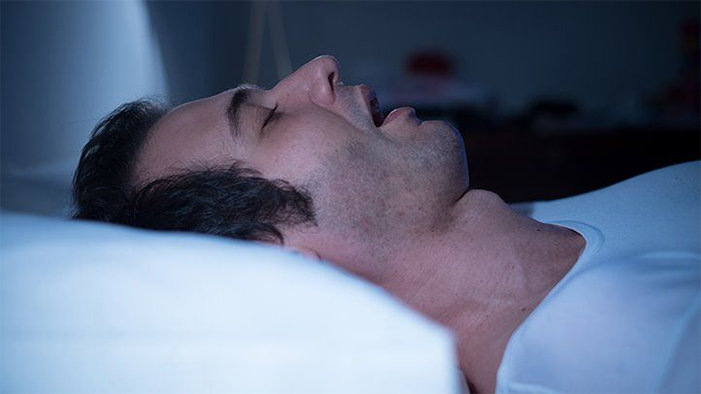How To Sleep Better

By Rita Singh
It’s a common experience that a problem difficult at night is resolved in the morning, after the committee of sleep has worked on it. Sleep is the golden chain that ties health and our bodies together - Thomas Dekker. Sleep is not really a time when the mind and body shuts down. It is an active phase in which healing restoration and strengthening occurs.

Sleep helps to solidify and consolidate memories and is quintessential to restore and rejuvenate, synthesize hormones, build immunity, regulate digestion, repair tissue, grow muscle and keep up the metabolism. Needless to say that a person who is sleep deprived may feel fatigued and devastated. Although seven to eight hours is widely thought to be the idea length of time for a good night sleep, the amount of sleep individual need varies considerably. If you feel that a little extra sleep time may help you, try going to bed earlier. It may be all you need to revitalize your energy and spirits. If the extra sleep time does not relieve your tiredness, it could either be that your quality of sleep is compromised, or your fatigue may be a secondary problem like anxiety, stress a viral infection or a thyroid condition.
What happens when you sleep?
Sleep is not a simple state of unconsciousness, but a series of stages that occur in regular cycles through the night, each cycle taking around ninety minutes. The stages of Rapid Eye Movement (REM) sleep during which the eyes are extremely active and non-REM sleep, when the eyes are still. As you fall asleep, your body relaxes and brain wave patterns quite down, breathing evens out, your pulse and temperature drop and the senses become less responsive. Gradually you pass through four progressively deeper stages of non-REM sleep before starting to come up again through the same stages (in the reverse order) into light sleep. Finally you move into a period of REM sleep when dreaming occurs. The eyes dart around (but stay closed) and brain wave patterns are similar to those of the waking state. Large body muscles enter a state close to paralysis perhaps to prevent dreams being dangerously acted out.Most people go through four or five sleep cycles a night, but both physical illnesses and sleep disorders can disturb the pattern or prevent you from reaching the very deepest levels of sleep. Most people put up with an occasional bad night sleep. But if this goes on for a prolonged period, you may need to search for better ways to sleep. Sleep apnoea mostly affects middle-aged men who are overweight. Their throat muscles over-relax during sleep, causing tissue to sag and obstruct air-flow. Sufferers stop breathing for an instant and partially wake up before starting again. As this may happen several times a night, sleep is severely disrupted. Sleep apnoea also robs the body and brain of oxygen and may make the sufferer irritable, aggressive and depressed. They also have a greater risk of heart disease and high blood pressure. Treatments include weight reduction, surgery and a nasal mask that assists breathing.
SNORING
There is, alas, no simple and instant cure for snoring. But there are several things that you can try. Snoring is most likely to occur if you are lying on your back. Sleeping in that position leads to loss of tension in the muscles of the tongue and the jaw, with the result that parts of the throat and soft palate vibrate as air is drawn in through the mouth and nose. Sleeping on the back causes the tongue to slide backwards, constricting and speeding up the flow of air. But it may take a considerable and conscious effort to change the habit of sleeping on the back. A stuffy nose can also aggravate snoring. If that seems to be a part of the problem, try raising the head of your bed by a couple of inches to allow the nasal passages to drain during the night. Chronic snoring may sometimes be due to sinus or respiratory problem, drinking too much alcohol or being overweight. The respective causes need to be tackled.

PILLOW TALK
The function of a pillow is to support your neck more than your head: - NEVER sleep with only your head on the pillow or you may strain your neck and upper back muscles. Whether you decide to buy a soft or a firm pillow is a matter of personal choice. But as a general guide, if you sleep on your side, try a firm pillow, which will give your head and neck extra support. If you sleep on your back, a medium firm pillow will cradle your head and ‘give’ a bit more. If you sleep on your stomach, choose a soft pillow to minimise the strain on your back. New pillows may be filled with synthetic fibres, foams or down and feathers. High quality polyester filled pillows offer a luxurious feel, are extremely durable and wash well. It is worth noting that chicken feathers are straight and must be artificially curled - a treatment that eventually wears off. Pillows made of foam and latex tends to be firm with a definite bounce to them. They cannot be fluffed or plumped but instead hold their shape very well.
For the healthiest possible sleep, it is advisable to invest in quality pillows and when they lose their thickness, become lumpy or discoloured every two or three years, it is time to buy new ones. Insomnia - annoying, exhausting and mysterious is sadly a common experience in the ageing population. Sleep patterns change radically after the age of 55, when our body clock resets itself and levels of important sleep hormones drop. But although you can’t reverse natural and inheritable sleep changes, you have things in your control especially in your lifestyle and attitude. Sleep changes don’t happen suddenly. They gradually start in your 30s. But you may not notice them until you are older or retired or until other factors get in the way. It is crucial to understand that the timing and quality of your sleep does change over time. Be sensitive to the changes. Monitoring changes and adjusting to them is half the battle.
The levels of protein Trefoil factor 2, which has a major role in repairing the stomach lining, increases up to 340 times during sleep. Sleeping well therefore has a major role in preventing ulcers and also few taking the digestive process efficiently.
As mentioned earlier, the number of hours one needs to sleep may vary from person to person. Remember that the chief sign of insufficient or poor sleep is feeling tired during the day. If you don’t suffer from tiredness during the day, you are getting sufficient sleep.
For a sleep-friendly lifestyle, it is good to practice relaxation techniques. Consistent efforts make it easy to relax and take your mind off worrying thoughts. Don’t keep looking at the bedroom clock.
Give up alcohol, smoking and caffeine - three causes of sleeplessness - and increase the amount of exercise you do during the day. But beware of evening workouts; they may keep you awake.
Stay away from tea and hot chocolate, soothing as they sound. they contain caffeine and will keep you awake. Avoid work, loud music, big meals, intense discussions and exciting television programmes late at night.
Make the hours before going to bed as relaxing as possible to keep your mind off the days’ problems. Take a warm bath. Listen to soothing delta waves sleep music. Delta waves have high amplitude and operate at a frequency range of 0 to 4 Hz, the slowest of all brain waves. They cause sleep to be restorative and emerge during stage 3 of sleep. This stage is also called delta sleep N REM sleep or slow wave sleep. Read a book.
Save your bedroom for bedroom activities. Entering it should not make you think of the bills you haven’t paid or the work you need to do the next day.
The quality of your sleep is closely related to the quality of your waking hours. Live happily and actively and sleep will come more easily.